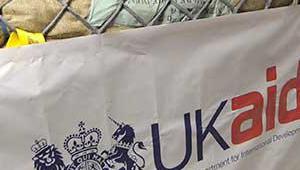Would a school teacher ask her pupils for their approval before grading their tests poorly?
As interesting a pedagogical experiment as this could be, there’s high chances that lower grades would start disappearing from report cards if the last word was left to the children themselves – who’d certainly prefer to go for a rewarding gift rather than a scolding from their disappointed parents.
And yet, such a basic, logical principle – you don’t let someone who has a personal interest at stake interfere if you want a transparent, objective evaluation – is sometimes forgotten even by the high-ranking institutions that should be shiny examples of democratic values, like the bank of the European Union.
In a paradoxical self-protective move, the European Investment Bank (EIB) – silently managing €80bn of loans per year from its Luxembourgish headquarters – has recently tried to heavily undermine the control function of its accountability body: the complaints mechanism.
This grievance mechanism was created precisely to handle criticism coming from citizens and communities affected by the bank’s projects.
And it’s often times the only channel and last resort they can use to make their voice heard, especially when they have exhausted all the possible options through their national justice systems.
For each case, the complaints mechanism is entrusted to enquire in the issues raised with a project, and provide a report outlining its conclusions. The report may include proposals for remedies to mitigate the bank’s misconduct where needed, and for improvements in the EIB’s policies and procedures if relevant. The mechanism has thus a fundamental monitoring mission: to carry out an independent judgement on the bank’s operations. Or so it should.
‘When the bank opened a public consultation on a new policy for its complaints mechanism, one would have expected the EIB to take this opportunity to finally fix these serious transparency and governance flaws.’
Since its creation in 2008, on many occasions the mechanism appeared stuck, taking years to disclose reports on cases – with consequent serious damages for the people who had addressed this EIB body to seek remedy for problems that were touching their everyday livelihood, their lands, their rights.
For instance, citizens whose health and livelihood were affected by the fiasco of the EIB-financed Ambatovy mine in Madagascar had to await a conclusion for six years after filing their complaint.
It became increasingly apparent that despite the efforts of the mechanism, the blockage comes from somewhere else within the bank.
When handling sensitive cases, the complaints mechanism’s activity has been subject to growing pressure from the bank’s staff to prevent the publication of reports that would potentially damage the reputation of the bank by exposing wrongdoings or lack of due diligence on projects.
Civil society has repeatedly pointed out that this interference is unacceptable, especially for a bank that invests public money and should apply the highest standards of transparency to all its processes.
Therefore, when the bank opened a public consultation on a new policy for its complaints mechanism, one would have expected the EIB to take this opportunity to finally fix these serious transparency and governance flaws.
Instead, the whole process simply goes in the exact opposite direction.
As underlined in a recent civil society’s appeal to the bank’s directors, the new policy astonishingly sets the premises to weaken, rather than reinforce, the independence and legitimacy of the EIB’s complaints mechanism.
It leaves even more room for the EIB staff and services — those whose decisions may well be the cause of harmful impacts — to interfere with the mechanism’s decisions, and fails to boost the involvement of the bank’s directors in learning lessons from the activities of the mechanism.
But there is a chance the precious function of the EIB’s complaints mechanism can still be preserved.
A positive signal came when the EIB board of directors met last month, and postponed the vote to approve the new dangerous policy proposed. Was it too blatant of a contradiction to be calling itself “a bank of the future” and then approve a policy that brings its standards backwards?
The bank’s directors will soon meet again to rediscuss the matter, and should not miss the chance to improve the new complaints mechanism policy as a starting point to build a more transparent and just bank for the citizens of the EU and beyond.
As it celebrates its 60th anniversary, the EIB needs to set new ambitious standards not only for its accountability, but also for fraud, corruption, and human rights issues, while proving a bold leader in the fight against climate change.
A race to the bottom is not an option.















